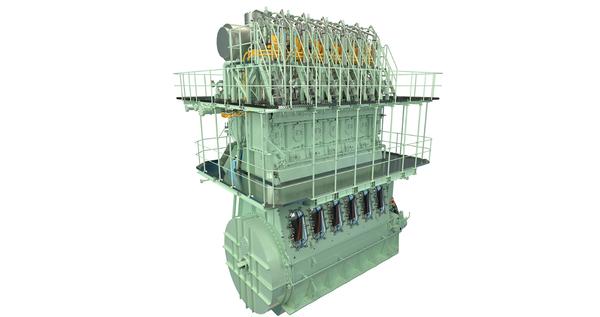Nestle pays premium for lower-emission Maersk voyages
Food and beverage giant Nestle has been using Maersk's biofuel credits to reduce its seaborne emissions.
 PHOTO: Maersk's container vessel in Algeciras, Spain. Getty Images
PHOTO: Maersk's container vessel in Algeciras, Spain. Getty Images
Danish container firm A.P. Moller–Maersk has been offering a custom lower-emission shipment programme, which allows its customers to receive carbon credits for their shipments by paying a premium. These credits are equivalent to shipments made on Maersk’s biofuel-fuelled vessels.
However, the vessels used for the specific shipments under the programme may not always be powered by biofuels, a source from Maersk told ENGINE. This means that lower-emission shipments can also be made on Maersk's fossil-fuelled vessels, and that Nestle and other customers will still receive credits if they have signed up for the programme and paid a premium.
Customers will receive a certificate confirming the greenhouse gas emissions (GHG) savings they have paid a premium for.
The companies have not said how much biofuel Nestle has bought credits for, or given any indication of how many of Maersk's vessels are running on biofuel and what biofuel blend percentage they are running on.
The concept of offering carbon credits equivalent to biofuel-fuelled voyages - even when the actual vessels may not always be powered by biofuels - aligns with the principle of mass balancing. In this case, the programme allows customers to claim carbon credits based on the use of biofuel-fuelled vessels, regardless of the specific vessels used for their shipments.
The emission reduction credits from some of the Maersk vessels powered by biofuels and green methanol are infused into this program, the source explains.
Nestle has been using this customised shipment programme to ship its beverages and coffee products since 2021, and plans to continue using it next year and possibly beyond, Maersk said. Nestle aims to use these biofuel carbon credits to reduce its sea transport carbon emissions, consequently reducing its share of Nestle's overall carbon emissions.
Maersk says that there has been a rise in global companies opting to reduce their seaborne emissions.
By Nithin Chandran
Please get in touch with comments or additional info to news@engine.online






